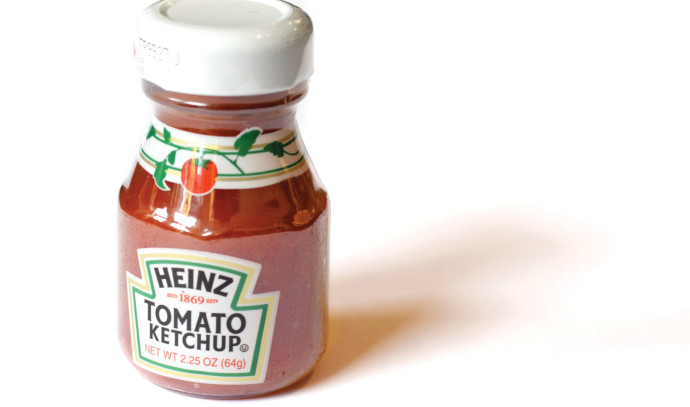On Thursday, the cabinet announced its intention to advance a bill sponsored by Economy Minister Nir Barkat that would reform the country’s import system to align it with European regulations and standards, thus reducing bureaucracy in the Economy Ministry’s import oversight.
While on paper this sounds like exciting news (who doesn’t want to see new products on store shelves?), based on prior precedent there is yet no reason to believe that this legislation will make a noticeable change on the Israeli consumer market – even if it gets passed without a hitch.
Second verse, same as the first?
It has been seven months since the government passed a massive reform of the country’s food standards, which aimed to bring the standards in line with those of the European Union. The reform was supposed to make imported food less expensive and more diverse for Israeli consumers, but so far there has been little to no change in the variety of products on store shelves.
That reform, which supposedly took effect on January 1, kicked off a four-year process of canceling and/or adjusting over 90 food standards, allowing for increased competition in the food market and driving down prices.
While seven months is indeed less than four years, how could it be that more than half a year has passed and consumers have felt no difference in market diversity?
Unrealistic standards
One possible explanation is that the reform simply hasn’t had enough time to take effect. It will take years for new products to make their way into the Israeli market, as importers and retailers need time to adjust to the new standards – though to have seen barely any change in the number of available brands at the local Shufersal in more than half a year has likely ruled out this scenario.
In lieu of accepting “You just haven’t waited long enough” as a valid explanation, one might turn one’s suspicion to the Standards Institution of Israel (SII), the non-governmental organization responsible for developing and promoting standards in Israel.
The SII serves as the national standards body for the country and has long been seen as a major stumbling block in the way of progress toward a freer and more diverse Israeli market. Despite the January import reform, the SII continues to operate and is likely a key factor in the lack of brand diversity in Israel.
The bar is too high and oddly shaped
In the past, as the developed world moved toward freer trade by removing formal customs duties, quotas, and other barriers, countries became very inventive in finding other ways to limit trade in order to protect their local market and manufacturers. One such way was by creating standards.
Standards are technical specifications that are developed by a consensus of experts and are intended to ensure the safety, quality, and compatibility of products and services.
These standards would theoretically permit other brands and imports, but only if they meet a very narrow set of criteria – criteria so narrow that they are tailored to whatever Israeli company makes that exact product, and no one else. With such specific standards in place, it can be nearly impossible for international brands to break into the market.
A notorious example of this made international headlines in 2015, when a petition from Israeli manufacturer Osem claimed that Heinz’s Tomato Ketchup does not sufficiently meet the SII’s guidelines for how much tomato paste a product must contain in order to qualify as ketchup. As a result, Heinz was forced to change its labeling in Israel to reflect its downgrade to “tomato seasoning.”
While Israel’s standards may have been founded in the desire to protect the country’s local producers, in the long run this has led to monopolization and an expensive, overly restricted market.
In light of this, many have argued that there is no reason for Israel to have its own standards when the US and the EU have spent many years and dollars developing universally relevant standards.
They’re not just messing up the food
While the SII’s influence over which foods are available in Israel is both very annoying and very prevalent, that is far from its only sphere of influence in the market.
Health products, cosmetics, appliances, and technology are just a few of the many industries that the SII has within its purview.
Small business owners have often lamented the expensive process required in order to receive the SII seal of approval on their products – which in many cases is unnecessary, considering they already have approval from internationally renowned standards sources. It is not uncommon for businesses to need to sell dozens of units to make up the SII inspection cost, based on the product in question.
The SII’s bureaucracy is currently so problematic that it has recently begun to draw the direct ire of government officials.
In a proposal submitted to the Knesset presidency on Monday, MK Dan Illouz (Likud) claimed that since the beginning of his tenure, he has received hundreds of inquiries regarding the difficulties faced by business owners when dealing with the restrictions imposed by the SII.
“The cries I hear from people who simply want to make a dignified living demonstrate the need for significant changes in the Standards Institution of Israel’s operations,” he said. “A company or business that collapses under the pressure of the SII is a disaster for the country, for families, and for the industry.”
As part of a policy to lift barriers and reduce regulations, Illouz has initiated a series of actions to expose the damages caused by the SII. He is taking these actions in tandem with promoting a comprehensive reform in the institution.
“When the SII imposes difficulties on small businesses, it creates monopolies and exacerbates the cost of living. We must take this into account and act accordingly. Ensuring public safety is crucial, but we cannot accept a reality in which what is good enough for Europe is not good enough for Israel,” he concluded.
Standard affair, sub par effect
Although the last attempt at reform is growing somewhat stale on the shelf, there is still a modicum of hope that the new efforts of the government can break up the crust around its edges and promote movement in the imports market.
In the meantime, however, the cost of living is only now beginning to level off – and it’s doing so at a fairly high price point. If the government actually hopes to make a difference in market freedom with its new burst of import-reforming energy, it had better move quickly because the wallet of at least one business reporter is rapidly approaching its expiration date. ■



